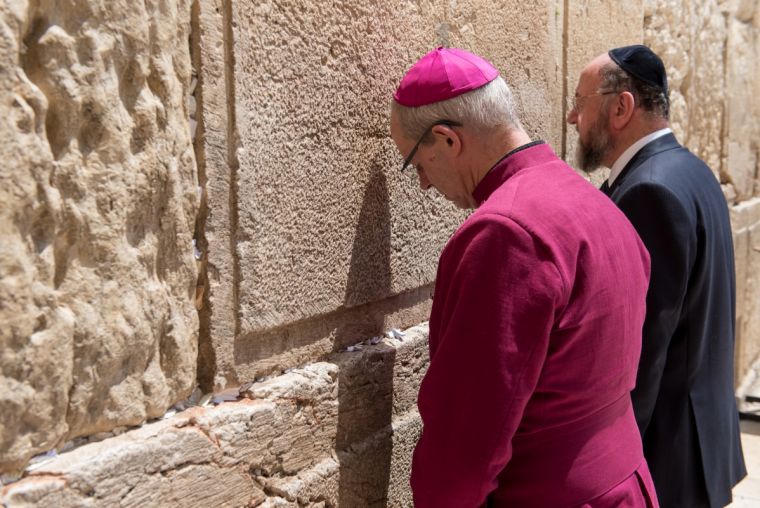Archbishop of Canterbury: We pray for a Palestinian state
The Archbishop of Canterbury is calling for Palestinian independence as he warns Britain's commitment to the Holy Land remains incomplete 100 years after the initial promise of an Israeli state.
Writing on the centenary of the Balfour Declaration in 1917, Justin Welby said the UK's failure to establish an independent Palestinian state 'remains the root cause of the conflict between Israelis and Palestinians today'.

The article marks the anniversary of when then foreign secretary Arthur Balfour promised to Lord Rothschild, a leader in the UK's Jewish community, that the government would back 'the establishment in Palestine of a national home for the Jewish people, and will use their best endeavours to facilitate the achievement of this object'.
The letter, which became known as the Balfour Declaration, went on to say: 'It being clearly understood that nothing shall be done which may prejudice the civil and religious rights of existing non-Jewish communities in Palestine, or the rights and political status enjoyed by Jews in any other country.'
Welby acknowledged the Jewish community 'continues to be confronted by prejudice, hostility and violence throughout the world' and promised 'to work to combat anti-Semitism wherever it appears and to pray for peace and security for Israel'.
But he said there 'is less clarity of intent for the Palestinian people' in Britain's original promise and warned the failure to plan for the 'consequences of the inevitable changes' led to the spiralling conflict.
'Palestinian communities were not given parity of provision for their own desire for independence, self-determination and statehood,' he wrote in the Telegraph.
'Later, as holders of the Mandate for Palestine, Britain assumed a "sacred trust of civilisation" for both the welfare of the Palestinian people and their path to independence. That aspiration for independent statehood has not been fulfilled yet and remains a root cause of the conflict between Israelis and Palestinians today.'
He called for the Church to pray and 'cry out to God, lamenting the suffering of others and repenting of our own complicity, culpability and negligence in their plight'.
He wrote: 'For Palestinian self-determination to be realised, there is a need for significant investment of time, attention and diplomacy from the international community and especially Britain. No good can come from despair and a collective lack of hope. We commit ourselves to pray and to act for the flourishing of Palestinians and for the exercise of self-determination in the establishing of a viable and secure state.
'There can be no more fitting way to mark the anniversary of the Balfour Declaration than to commit ourselves to pray in thanksgiving for the land which provides a home for Israelis and Palestinians; for the thriving of Jews, Christians and Muslims there; and to pray too for the fulfilment of what remains unfinished in aspirations for statehood, security and peace.'











